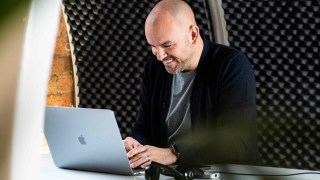
Do you ever feel like you are multitasking at work so much that you feel overwhelmed and get less done?
We work in a culture where juggling lots of tasks at once is viewed as a massive positive and a sign of a great employee. Research now indicates that when we do multitask, it actually makes us less productive, as well as having a negative long-term effect on the brain.
Why do we multitask when it’s worse for us?
The first use of the word ‘multitasking’ was in an IBM paper in 1965, describing how their latest computer at the time rapidly switched between tasks so quickly that it appeared like they were all happening at the same time.
Humans then decided to adopt the concept, thinking that to achieve maximum productivity, we also needed to multitask.
Especially since the global pandemic and more business in the UK offering hybrid working, most of us are bombarded with Teams messages, emails, personal to-do lists, and requests from colleagues. The list goes on.
So, what do we do?
The alternative to multitasking, is monotasking. Monotasking is the practice of dedicating yourself to a given task and minimising potential interruptions until the task is completed or a significant period of time has elapsed. These are called ‘sprints’.
This means going on ‘do not disturb’. Putting your phone out of reach. Putting on some headphones and listening to music with no lyrics. Shutting down any distractions. And simply having a list of tasks that you’ll do in a linear fashion with quick breaks in between.
It’s unrealistic to think that you can monotask all day, every day. Meetings and collaborative projects will require some level of multitasking, but I can imagine that there is a large portion of tasks that you do that could easily be done as part of a monotasking sprint.
A lot of monotaskers use these handy desk timers which avoid the need to use a phone timer or keep clock-watching. Some monotaskers even join virtual Zoom calls with fellow mono taskers, meaning that they have a safe and encouraging space to help with accountability whilst working and also helps add a sense of community for those who feel motivated by the work of others.
Monotasking is mainly to do with changing your mindset. It’s saying to yourself “I am going to solely focus on this task at hand and give it my all. Other things can wait”.
Does it work?
Being a Project Manager in the Website & Systems team has allowed me to learn so much about my team’s working patterns. It has allowed me to analyse each team member and the best way to harness their potential in a workday.
A couple of years ago, we changed the way that we scheduled work within the team to avoid the need to flit between multiple projects within a day. Off of the back of this, we have found that the team produces better work with far less mistakes.
So, if you have that overwhelming feeling that you’ve got too much to do and don’t know where to start, give monotasking a try. It may be for you.
In case you were wondering, this article was written while monotasking.
Useful links:
Spacetime Monotasking







